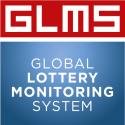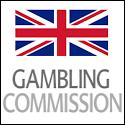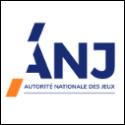The FIFA World Cup Set Several Records for Online Sports Betting
PARIS, France (February 3, 2023) — As expected, the FIFA World Cup was a highlight of the sports betting diary in 2022, with online stakes breaking records. This economic report confirms the real enthusiasm for sports betting which, for a large number of bettors, is an inseparable practice from football. In terms of advertising, content has been standardized and the commitments made by operators to reduce advertising pressure have generally been respected. Nevertheless, the massive use of program sponsorship and influence are points of vigilance for the regulator and answers will have to be provided soon.
Economic balance sheet: a capital World Cup
The FIFA World Cup has set several records for online sports betting :
- 597 million € in stakes and 70 million GPJ (Gross Gaming Revenue), a record performance for a competition of this scale. The stakes have thus increased by 56% compared to the 2018 World Cup and by 37% compared to the Euro which was held in 2021, but included fewer matches. The results recorded in FDJ points of sale will be communicated in mid-February. We can nevertheless estimate that the total amount of stakes recorded online and at points of sale could exceed €900 billion.
- With €51 million in stakes, the France / Argentina final is the match that holds the record for stakes, dethroning the 2018 France / Croatia final (€38 billion).
However, this assessment should be placed in a more general context of a slowdown in the growth of online sports betting in 2022. In fact, in 2022, a growth of 2.5% is recorded in the GGR of the online sports betting segment, compared to 44% for the year 2021 and 7% in 2020, marked by Covid. The 2022 World Cup stakes represent 7.2% of the total stakes placed in 2022, compared to 10% in 2018. Two explanations for this drop in the weight of the stakes associated with the World Cup can be put forward: on the one hand, the number of players who opened an account during the World Cup was greater in 2018 than in 2022. Their weight in the total number of player accounts opened has therefore decreased. On the other hand, it seems that the players are already active before the World Cup spread their bets more throughout the year, and diversify them on other football competitions and sports, such as basketball in particular.
Profile of players and betting practice: more women and 18-24-year-olds among new bettors
- 177,000 new bettors created an account during the competition. This is less than in 2018 (232,000 accounts opened);
- A pool of more female players: twice as many women aged 18-24 were recruited as during a period of normal activity, that is to say outside of a major sporting and popular event;
- 54 million bets were made, more than double that in 2018;
- If players bet more than in 2018, the amount of unit bets is €11, i.e. slightly lower than the number of unit bets observed in 2018;
- The average bet placed throughout the competition remained stable compared to that observed during the 2018 World Cup, with €234;
- 2.6 million player accounts placed a bet during the competition (players have an average of 1.2 accounts). This represents 2.2 million unique players ;
- 70% of these player accounts show a negative balance sheet, 23% a positive balance sheet, and 6% a balanced balance sheet; Only 1% won more than 10 times their bet.
- 18-24-year-olds represent 53% of new players, which is above a normal period of activity.
It is still too early to assess the effects of competition on the loss of control and addiction. An ANJ/OFDT (French Observatory of Drugs and Addictive Tendencies) study project will make it possible to observe this phenomenon over the medium and long term on new players and regular players.
Prevention campaigns
For the first time, several prevention campaigns were carried out by public institutions before and during a major sporting event. These three campaigns, launched by Public Health France, the General Council of Seine-Saint-Denis, and the ANJ have made it possible to raise public awareness of the risks of the problem and excessive gambling with different tones of intervention. The ANJ campaign “You saw you lost” addressed sports bettors by mobilizing their media and their codes.
Assessment of the regulatory system on the commercial communications of operators
After noting unprecedented advertising pressure in favor of sports betting during the 2021 European Football Championship, the ANJ launched an ambitious action plan to “de-intensify” advertising pressure on all communication media (television, radio, display, and digital) and strengthen the protection of minors and at-risk groups, particularly on digital levers.
This two-part plan included, on the one hand, guidelines for advertising content and financial rewards and, on the other hand, recommendations for reducing advertising pressure on all media channels and moderating bonuses, so as to better protect vulnerable groups.
In order to demonstrate their willingness to apply the recommendations of the ANJ, all the players in the ecosystem – advertising agencies, audiovisual professionals, and gambling operators, signed in November 2022 four commitment charters to moderate advertising pressure and promote responsible commercial communications on television, radio, billboards and digital. The Mondial was the first major event to test the effectiveness of the commitments made.
- Regarding the content of advertisements, a change in tone has been observed. There is less highlighting of outward signs of wealth or false beliefs about the possibility of changing social status through sports betting and less blatant targeting of young people from working-class neighborhoods. According to a study carried out by Toluna, – Harris Interactive for the ANJ [1], sports betting ads are considered to be “slightly less disturbing and aggressive” than during Euro 2021;
- Commitments made on TV, radio, and billboards were generally respected and made it possible to contain the pressure on the traditional media;
- The pressure on digital seems slightly less important than on the occasion of the Euro, but this point needs to be confirmed on the basis of the figures expected in February;
- The transparency of financial reward offers (welcome and loyalty bonuses) has improved. In addition, the €100 limit on the welcome bonus recommended by the ANJ has been generally applied by sports betting operators.
Finally, the ANJ has carried out a control operation of the four main sports betting operators in order to ensure compliance with the commitments they have made. Verifications are in progress.
[2] 40% of respondents consider sports betting ads disturbing compared to 47% during the Euro and 33% consider them aggressive, compared to 41% in 2021.
A need to go further
Points of vigilance remain insofar as the ANJ has observed circumvention strategies on the part of certain operators with massive recourse to the sponsorship of sports broadcasts and to influence, which are particularly invasive levers and popular with youth. During the World Cup, a hundred influencers were mobilized to promote sports betting, mainly on Instagram, YouTube, and Twitter. 80% of influencer audiences are under 34 and 50% are under 25.
The working group on sponsorship initiated by the ANJ in July 2022 will deliver its conclusions and proposals in March; they will relate in particular to the jersey partnership, the naming of the competitions but also the sponsorship of programs on radio, television or even on streaming sites.
The ANJ also actively participates in the various initiatives of the public authorities aimed at better regulating the use of influence.
Finally, although the advertising pressure was contained during the World Cup, it remains at a high level, particularly on television, billboards, and on social networks. The study carried out by Toluna – Harris Interactive indicates that 49% of people who saw advertisements for sports betting during the World Cup believe “that there are too many of them” (compared to 54% during the Euro). 88% of those who have seen these advertisements say they have seen them on television and 54% on social networks, with a proportion that rises quite logically to 79% among those under 35 years old.
The review by the ANJ college in February 2023 of the promotional strategies of gambling operators aims to take stock of the regulation of advertising in 2022 and to provide new responses to the marketing ambitions of operators. , in particular concerning their significant presence on social networks very popular with young people and excessive players, the massive use of influence and sponsorship.
For Isabelle Falque-Pierrotin, President of the ANJ: “The regulatory system put in place by the ANJ as the World Cup approached made it possible, with the tools at its disposal, to contain the advertising pressure and the operators generally played the game. Nevertheless, this pressure remains strong and worries the regulator, in a context where the latest OFDT studies show an increase in excessive gambling [1]. The ANJ is therefore considering additional measures that it will propose in the coming months to the public authorities, to strengthen the supervision of advertising for gambling. »
[1] The 2019 OFDT study highlights a significant increase in excessive gambling.
SOURCE: l’Autorité Nationale des Jeux (ANJ).
Tags: Online Sports Betting, l’Autorité Nationale des Jeux (ANJ), FIFA World Cup



























